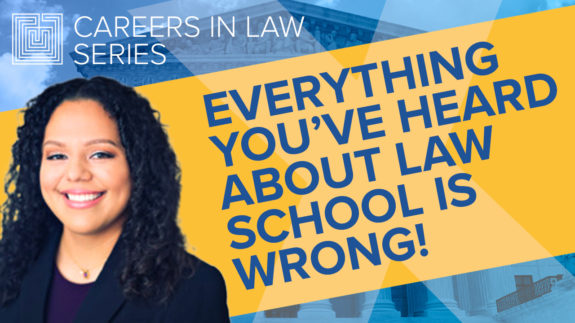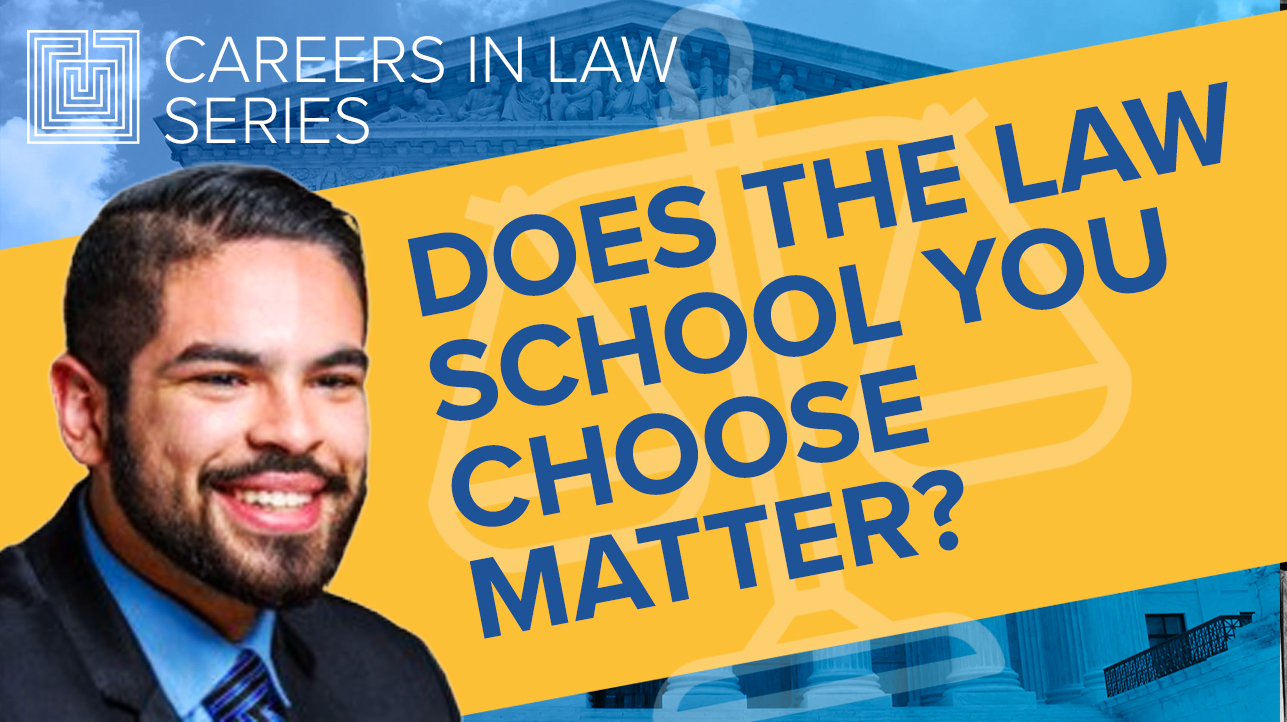Careers in Law Episode 3: Immigration Rights with Karen Aguilar
The Blueprint Careers in Law Series continues our focus on public interest rights with Karen Aguilar, a Removal Defense Attorney at the Coalition for Humane Immigrant Rights (CHIRLA) and an Adjunct Associate Professor of Law at Southwestern Law School. Aguilar has an incredible story of perseverance and the power of determination, becoming the first in her family to become a lawyer and making a direct impact on the lives of many in the immigrant community.
In this interview with Blueprint, Aguilar describes some of the challenges she faced navigating the law school process, choosing to attend community college before transferring to a four-year university, combatting Imposter Syndrome, and whether you should work at a law firm before applying to law school. She also dishes on what the worst law school advice she received was and offers practical and honest alternatives to help future and current law students succeed!
Watch the full Careers in Law episode below to listen to Karen’s story!
Talk to us a little bit about your childhood growing up and what first got you interested in pursuing law as a career.
“I grew up in South Los Angeles, and I continue to live in South Los Angeles. I am the daughter to a family of refugees from El Salvador. And for many folks who are first generation like myself, we tend to have the experience of being at the forefront of issues that impact our families. We often find ourselves being the interpreters and the translators to help our family navigate the systems of this country. And I think from a very early age, I knew that my position not only within my family, but within my community would be to be a voice and to be an advocate. And I think I knew as early as middle school that I wanted to be an attorney. My perception of attorneys were that they were articulate and that they knew how to defend themselves and that they knew how to defend other people. And I think when you come from a background of feeling a little bit defenseless, you have that desire to know more.”
You got into some of the best universities in the country, but you chose a different path. Can you talk to me a little bit about that decision to go to community college first?
“I was accepted to UC Berkeley, I was accepted to UCLA right out of high school. There were two things that drove me to go towards the community college path. The first thing was that I had never been away from home…And it was scary for me to be away from my family. Because I find strength in community and I was afraid that I maybe wouldn’t be a strong outside of a place that felt safe for me. And the second thing that drove me to make that choice of going to community college was money. I didn’t quite understand financial aid. And when I was presented with these tuition amounts on an annual basis and books expenses and cost of living, I couldn’t believe that I would have to keep up or think about that for the next four to five years. I didn’t know how to manage it. I didn’t know that financial aid would be enough to cover it. I was afraid of taking out loans. I didn’t even understand what interest rate meant on loans.”
What’s an example of bad law school advice you received?
“I remember, when I was thinking about which major I would choose to go to law school. I asked so many people, what would be helpful, what would help me best prepare for law school. And everyone said, ‘Oh, you’ll learn what you need when you get there. They’ll teach you how to be a lawyer. They’ll teach you about the law when you get there…Just enjoy your undergraduate experience,” which is true, you should enjoy school’…I thought, Okay, well, I don’t know much about the world. I’m not very cultured, I haven’t traveled. And in learning about all these different majors, I chose anthropology. And it was a very interesting major, I did learn a lot. But when I came to law school, I didn’t realize that there were certain weak areas for me that I had to work on. I didn’t come in with the strongest skill set. And so, it was upon that discovery that I thought, ‘Wow, I wish someone would have told me how important it was to know how to write very, very well.'”
How should students choose a major if they want to go to law school?
“My advice would be that if you are thinking about choosing a major, yes, it’s important to choose something that is interesting, something that you are going to enjoy. But there is a skill set that is very important for lawyers..”
Watch the Blueprint Careers in Law Episode 3 to find out Karen’s advice on choosing a major for law school and more advice for pre-laws!
Note: Responses were edited for clarity.
Don’t miss our other Careers in Law Public Interest and Social Justice Law Episodes!
Careers in Law Episode 1: Housing & Homeless Prevention with Ugochi Anaebere-Nicholson
Careers in Law Episode 2: Children’s Rights Law with Leah Cohen-Mays
Looking for a career in immigration rights law or another area of public interest law? You’ll need to take the LSAT first! Prep at your own pace with the Blueprint LSAT Self-Paced LSAT Course, with an instructor in our Live Course LSAT Classes, or one-on-one with a private LSAT tutor. We have an LSAT prep course for every learning style!
<!–[if lte IE 8]>
<![endif]–> hbspt.cta.load(7934320, ‘d1acf808-f23a-4ca3-8901-efe84c5ed084’, {“region”:”na1″});
hbspt.cta.load(7934320, ‘d1acf808-f23a-4ca3-8901-efe84c5ed084’, {“region”:”na1″});



